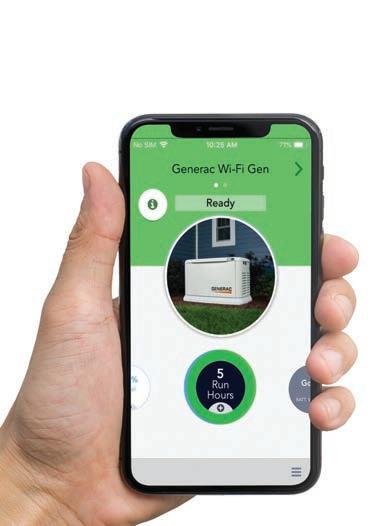
3 minute read
7 7 QUESTIONS TO ASK A POTENTIAL CONTRACTOR
When it comes to renovating your home, be it a kitchen remodel or a bathroom overhaul, you want to be sure you hire the right professional for the job. This is the person you are depending on to tear down your walls and spend your dollars wisely. Avoid a renovation nightmare by researching a few different contractors and setting up an interview with each of them. Here are seven interview questions to ask a potential contractor to ensure you hire the right pro!
1
Are you licensed, bonded and insured?
Most states require contractors and their employees to take and pass an exam, as well as attend annual education courses to maintain their license. If they are insured, so are their employees. This is vital when choosing a contractor, because if they are not insured and someone gets injured on your property, you will be liable and they can sue. Bonds, such as a surety bond, will ensure that if they go out of business mid-renovation or they do not finish the job for another reason, you are not liable for the additional costs to fix the job or pay their bill.

2
What is the cost breakdown?
Never settle for a general or overall price estimate. Asking for an itemized cost breakdown is a vital step in the interview process. This way, you can see what they are charging you for and decide on any changes before they start. Oftentimes, there are many hidden fees that a homeowner may never know about. With a cost breakdown, you can discuss your options, update plans and even consider more cost-effective materials for your project.
3
What is the anticipated timeline for this project?
After discussing the cost, you want to understand how much time your project will take. Of course, you will likely not be offered a set finish date, as weather and other incidents may change things. Remember that delays are common and unforeseen circumstances may end up changing the completion date. Work closely with the contractor to set an anticipated start and end date, and if you need the work finished by a specific date, be sure to mention this now rather than later.
4 How long have you worked in this area?
In order to build a good reputation in a city or community, contractors must perform at a high-quality standard. Understanding how long they have been in business and how long their employees have been working with them will give you a better idea of how the finished product will look. If they have experience working in your area before, they will have a better understanding of permit regulations and any possible issues in your area, such as piping and electrical work, that you may not be privy to.
5 Can you share references from past customers?
Previous customers are your best source of information on how well a contractor performed. In addition to doing your own research and reading online reviews, ask them to share a few past customers for you to speak with. When you do reach out, ask questions such as, “Were deadlines and expectations met?” and “What were your best and worst experiences working with this contractor?” This will help you get a better understanding of the contractor’s communication skills, as well as the quality of work you are paying them for.
6 Will you obtain the correct permits?
Permits are almost always required for professional remodeling jobs. Make sure that your potential contractor understands the rules and guidelines for permits in your area, and that they will help to schedule a visit from an inspector. Once a building inspector reviews the project and approves it, your contractor will be issued a permit to start the work. Remember to ask for copies of any and all permits for your records. If a contractor tells you they do not need a permit, do not hire them!
7 Can we put everything in writing?
In addition to collecting copies of the required permits, you want to ensure everything is put in writing. Every detail should be included in a contract, such as payment schedules, cost breakdown, timetables, materials purchased and other essential information. Before you decide on a contractor, be sure contracts are complete and signed before any work is started. Do not trust a contractor who refuses to put things in writing or tries to talk you out of a contract.













